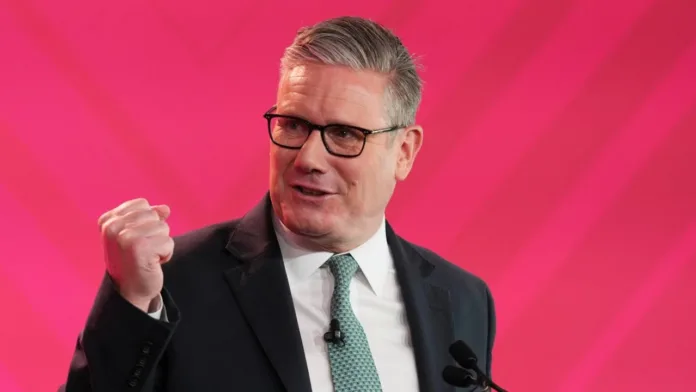16 and 17-year-olds will vote in the next UK general election under controversial Labour-led reform
In a move that could permanently reshape British politics, the government has confirmed plans to lower the national voting age to 16 ahead of the next general election — making around 1.5 million teenagers eligible to cast their first vote.
The sweeping reform, announced today by Prime Minister Keir Starmer, fulfils a flagship Labour manifesto pledge and brings England and Northern Ireland in line with Scotland and Wales, where 16-year-olds already vote in devolved elections.
Speaking from Downing Street, Starmer defended the decision by pointing out that young people “pay in” to the system through work and taxes, and should therefore “have a say” in how their money is spent.
“If they’re old enough to work, to pay tax, to start apprenticeships — they’re old enough to vote,” he said.
But the reaction from opposition benches was swift and scathing.
Conservative MP Paul Holmes accused the government of rushing through “hopelessly confused” legislation during summer recess, denying MPs proper scrutiny. Reform UK leader Nigel Farage derided the change as reckless — “even though we get lots of votes” from younger demographics, he added.
The Liberal Democrats welcomed the move, calling it a “no-brainer,” while political analysts warned of both limited electoral impact and major cultural consequences.
Luke Tryl, director of the think tank More in Common, told the BBC that 16 and 17-year-olds would only make up about 2% of the total electorate. “It’s not a huge amount,” he said, “and we know younger voters tend to turn out at lower rates than older generations.”
Still, in an age of tight margins and fragmented political landscapes, even a small demographic shift could tilt key seats. Professor John Curtice, one of Britain’s most respected pollsters, said the Greens stand to gain the most, describing them as “the natural home” for socially liberal young voters.
Curtice also noted that this cohort cares more about housing, apprenticeships, and university fees than immigration, and is more likely to support gender recognition reform and EU re-entry.
The policy is part of a wider Elections Bill the government plans to introduce, which also includes proposals for automatic voter registration, expanded forms of acceptable voter ID, and stricter rules on political donations to prevent foreign interference.
Acceptable ID would now include UK-issued bank cards displaying the voter’s name — a notable shift aimed at boosting access.
However, the backlash has not just come from politicians. Among young people themselves, reactions have been mixed. Some teenagers described it as an “incredible opportunity to shape our future”, while others voiced concern over their own readiness to participate in national politics.
One 17-year-old warned the move might “backfire,” questioning whether enough is being done to educate teenagers on the democratic process before giving them the vote.
Elsewhere, scrutiny is turning toward seats that could swing on a small shift. Labour leader Keir Starmer’s Holborn and St Pancras seat, for example, has a comfortable 11,572-vote majority — with only around 1,800 new voters likely to be added under the reforms.
But in more marginal constituencies like North West Essex, held by Conservative leader Kemi Badenoch with a 2,610 majority, the influx of young voters could be pivotal.
The full package of changes will need to pass through Parliament when MPs return from recess in September. But with a Labour majority and growing support among progressive parties, the legislation is widely expected to become law in time for the next general election.
For now, the UK prepares to become the latest democracy to hand the reins of the future to its teenagers — a bold bet on youth in an era of political uncertainty.
